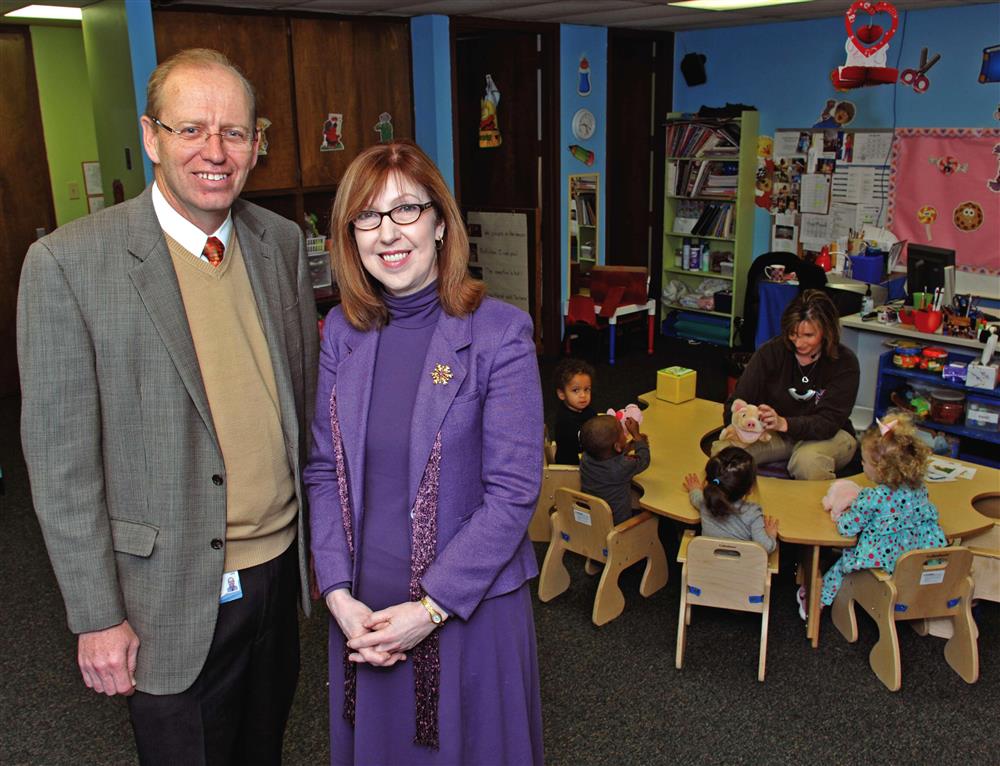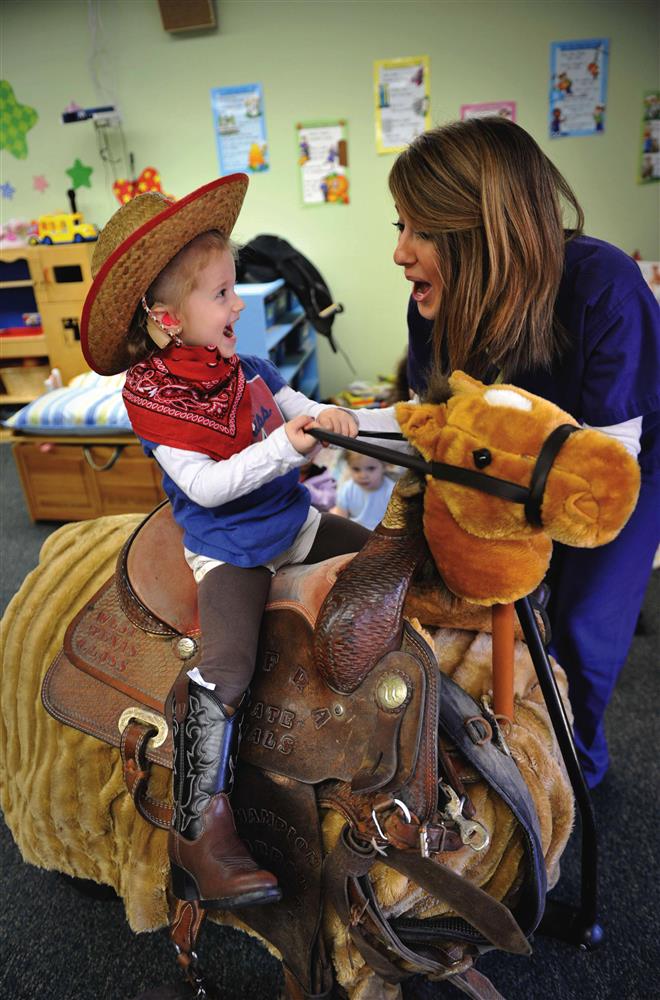UMMC teams with Magnolia Speech School to boost language development

Magnolia Speech School, founded in 1956 with the mission of helping children with hearing loss develop their language skills, has signed an affiliation agreement with the University of Mississippi Medical Center with the aim of ensuring a seamless continuum of care for patients with communication disorders. The agreement launches a partnership that officials at each institution feel will have long-range mutual advantages.
"We sought their partnership," said Dr. Ian Windmill, professor and chief of the Division of Communicative Sciences. "The goal is to align our clinical programs so that a child who is identified with hearing loss here is picked up there almost immediately."
Magnolia Speech School provides auditory/oral classrooms for preschool and elementary-age students with hearing loss, many of whom have cochlear implants.
While not a cure for deafness, cochlear implants can provide recipients with a sense of sound so effective that a child born with profound hearing loss can speak and communicate just as well as peers before even reaching kindergarten.
But it's not as easy as flipping a switch. Auditory/oral therapy is crucial to getting the most out of the technology.
"Learning hearing begins in utero," said Dr. Jeffrey Carron, associate professor and director of the Pediatric Cochlear Implant Center. "Once you're born, you're getting constant daily sound and your brain is building pathways. The day you get implants, you have to go back and make up for what you missed."
So the younger a child is when he receives the implant, the less work it takes to catch up, explained Carron, who performed Paisley's implants.

"I tell parents the best possible outcome is through an aggressive auditory/oral program like Magnolia for at least three or four years," he said. "Parental motivation is everything. A lot of the success of Magnolia is due to the sacrifice by parents."
Twyla Lovern wakes up at 4 a.m. every weekday to drive her 4-year-old daughter Paisley to Magnolia from their home in Philadelphia. Paisley was born with profound hearing loss in both ears and received cochlear implants at 12 months of age.
Lovern and her husband made the decision to go with the implants because "we wanted her to have the opportunity to be able to function to the best of her ability in society, and we were willing to do the work," she said.
When Lovern first visited the school and saw how much progress children with implants were making, she made up her mind to enroll Paisley, despite the fact that the family's house had just been built in Philadelphia.
"It's worth every mile I travel and every hour of sleep I go without," said Lovern, who now works at the school as a teacher's assistant. "I could always sell my house, but there's only one opportunity to get this education."
In the U.S., the goal is that every child is screened for hearing loss by one month, with a full diagnosis by three months and intervention by six months, said Windmill.
The partnership with Magnolia offers an opportunity to improve the screening process as well as follow-up services.
"The idea is that if we manage that, then we can meet the 1-3-6 goal. Right now we're not making that in Mississippi."
Additionally, Windmill says Magnolia will be fertile ground for research and training.
Magnolia Speech School currently has 80 students in classrooms, 69 in the Early Intervention home-based program, and 11 more served in the outpatient clinic. The school staff includes teachers, assistants, an occupational therapist, audiologists early interventionists and speech pathologists. In addition to serving children with hearing loss, the school also has a program for children with language disorders, including those with autism spectrum disorders.
"Our goal is to help students with communication disorders develop full potential through spoken language and literacy," said Anne Sullivan, the school's executive director.
Accredited by the State Department of Education and the Southern Association of College and Schools, Magnolia was founded by Elizabeth "Libba" Matthews, whose son was deaf. Matthews modeled the school on the Central Institute for the Deaf in St. Louis, where she studied. Since opening, the nonprofit Jackson school has served children from every county in Mississippi as well as 22 other states, Sullivan said.
Sullivan said she'd like to make the school's services available to more children around the state so that parents don't have to choose between an impossible commute and relocating to the metro area.
"One of the reasons we're joining forces with UMMC is that we want to be accessible," she said. "The earlier they have access to sound, the more it's a part of them and the more they can use it."


